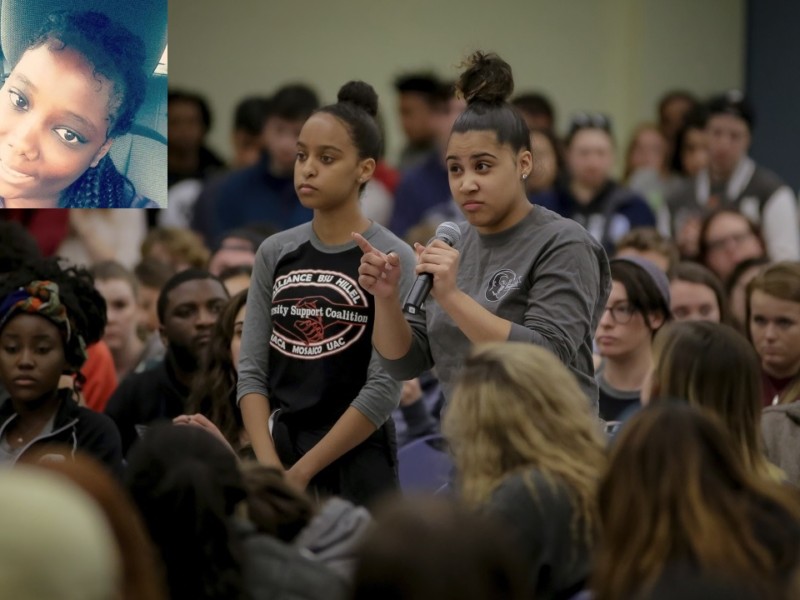
Jamaican student blows whistle on racism at US university
Some University of New Hampshire students say the school has failed to address currents of racism on campus and are demanding that it double the number of students and faculty of color, offer diversity training for all staff and amend the student conduct code to expel students who post “racially insensitive” content.
The actions were called for Thursday night as several hundred students met with the administration in a tense and often heated gathering over what they said has been its failure to address long-running concerns about racial insensitivity on campus.
Sparked by what some saw as offensive actions by white students wearing ponchos and sombreros during a Cinco de Mayo party last week, the mostly minority students told UNH President Mark Huddleston and his administration about racist incidents they had experienced and how they felt authorities had ignored their concerns.
Several black students talked about friends being spat upon and called racial epithets or, in one case watching someone drive past campus with a Confederate flag flying from their vehicle and call their friend a racial epithet. Others recalled a growing intolerance from fellow students following the election of President Donald Trump.
“If you keep poking at a balloon, it’s going to explode,” said Jubilee Byfield, a 21-year-old black sophomore, recounting how black friends were turned away from a fraternity party. “Do you want to be a school that didn’t say anything about it?”
The controversy started after Danique Montique, a 20-year-old sophomore studying political science and justice studies from Linstead in Jamaica, posted a video May 6 to her Facebook page of her confronting a white student over his wearing a poncho. The student body is mostly white. Of the 12,430 undergraduates, 423 are Latino and 165 are black.
“For an institution that claims it encourages diversity, where were you yesterday when we needed you the most? Why do you encourage us to come here? Yet we’re forced to defend our existence every day on this campus,” she wrote in a post accompanying the video. “I was utterly disgusted with students who chose to demean and appropriate Mexican culture. I walked on campus miserable as if I didn’t belong. As a black woman, I was forced to become the very thing society deemed me to be; angry.”
News of the video spread on Facebook and Twitter, prompting an outpouring of support but also scores of what Montique described as racist and sexists comments — “A lot of people called me the c-word, the b-word, the n-word.” Among them was an Instagram post of a white male who appeared be wearing black paint on his face along with comments mocking Montique. Later, the unidentified man told NH1.com that he was wearing a beauty mask and had not given permission to his friends to post the photo.
Still, the Instagram post sparked protest among 50 minority students who held a sit in overnight Wednesday on campus demanding the university investigate the photo. That led to the forum Thursday in the hopes of solving the problem, in which Huddleston said the administration needs to do more including boosting the numbers of faculty and students of color at the mostly white campus.
“Obviously, there are incidents of bias and racism that are absolutely unacceptable — that for many of us go beneath the surface. They are clearly not going beneath the surface for all the kids in this room tonight,” Huddleston told The Associated Press. “The point of the forum for me was to make sure that all of my team understands that and we do what we can to make it better.”
Huddleston was repeatedly attacked during the forum for not doing enough to combat racism on campus. He said that over the past decade he has tried to provide a “safe and welcoming campus” but had come up short.
“Obviously, we haven’t been able to do that,” he said. “In a lot of respects, we have a lot of work to do. But I would ask that you not disbelieve my intentions.”
The University of New Hampshire is among the latest colleges to confront complaints about a lack diversity and racial intolerance. Inspired by the Black Lives Matter movement, the protests have spread to campuses across the country, where demonstrations and sit-ins have forced administrators to consider bolstering diversity training, expanding African-American programs and hiring more minority faculty.





















